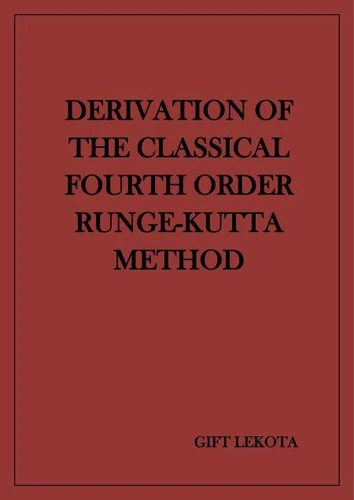Derivation of the Classical Fourth Order Runge - Kutta Method
Par :Formats :
Disponible dans votre compte client Decitre ou Furet du Nord dès validation de votre commande. Le format ePub est :
- Compatible avec une lecture sur My Vivlio (smartphone, tablette, ordinateur)
- Compatible avec une lecture sur liseuses Vivlio
- Pour les liseuses autres que Vivlio, vous devez utiliser le logiciel Adobe Digital Edition. Non compatible avec la lecture sur les liseuses Kindle, Remarkable et Sony
 , qui est-ce ?
, qui est-ce ?Notre partenaire de plateforme de lecture numérique où vous retrouverez l'ensemble de vos ebooks gratuitement
Pour en savoir plus sur nos ebooks, consultez notre aide en ligne ici
- FormatePub
- ISBN8224357680
- EAN9798224357680
- Date de parution04/01/2024
- Protection num.pas de protection
- Infos supplémentairesepub
- ÉditeurVirtued Press
Résumé
The classical fourth order Runge-Kutta method is among the most widely used numerical methods for obtaining the approximate solution of a first order initial-value problem, yet its derivation is often omitted from undergraduate texts on numerical methods because of the considerable algebra involved in arriving at the formulas. This article presents a detailed step-by-step derivation of the classical fourth order Runge-Kutta method.
The classical fourth order Runge-Kutta method is among the most widely used numerical methods for obtaining the approximate solution of a first order initial-value problem, yet its derivation is often omitted from undergraduate texts on numerical methods because of the considerable algebra involved in arriving at the formulas. This article presents a detailed step-by-step derivation of the classical fourth order Runge-Kutta method.



